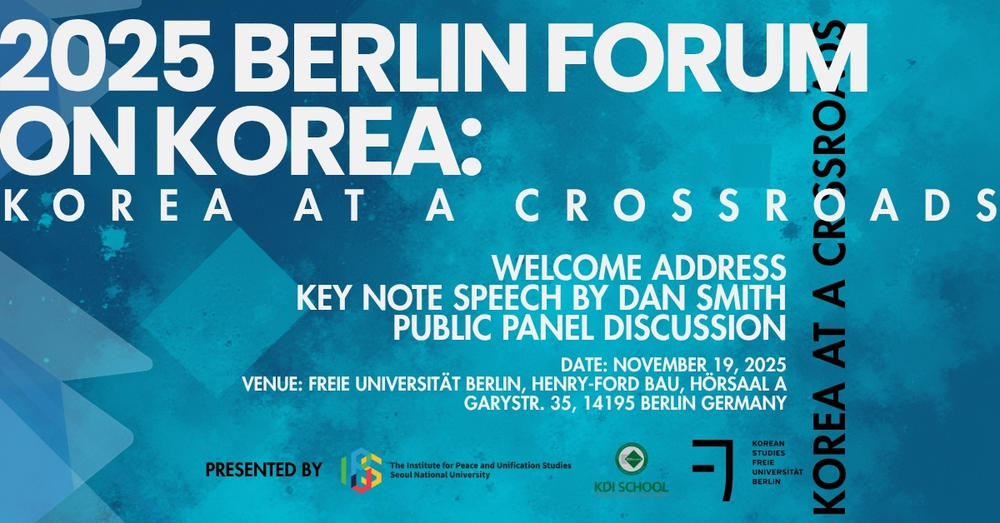Berlin Forum on Korea 2025
Korea at a Crossroads: At the Intersection of East-West and North-South
Conference theme:
The chill wind of a “new Cold War” blows into the unhealed chasm of the old confrontation. Korea in particular, and East Asia in general, remains divided eighty years after the Cold War’s onset. But two historical initiatives, launched in Helsinki and Bandung decades ago, offer instructive lessons. One sought to manage bipolar tensions through dialogue and mutual recognition; the other aimed to transcend them through third-party solidarity. Can Korea draw on these legacies, or will it once again be drawn into great-power rivalry?
The Helsinki Accords remain relevant because East Asia confronts strikingly similar challenges. In 1975, thirty-five adversarial states agreed on principles of inviolable borders, nuclear restraint, recognition of two Germanys, and respect for human rights. Turning to East Asia, we face military tensions across the Taiwan Strait, nuclear armament debates in Seoul and Tokyo, competing “two state” solutions advanced by both Koreas, and testimonies from defectors revealing the dire human conditions in North Korea. Half a century ago, Europe managed to escape the Cold War by constructing a strategic triangle between the superpowers. Can Europe and East Asia today build a similar solidarity to resist the trap of a “new Cold War”?
This question is closely tied to imagining alternative forms of global governance. The aspiration to transcend bipolarity was not Europe’s alone. In Bandung in 1955, the “Third World” called for solidarity and cooperation, and the Non-Aligned Movement sought to secure a role for middle powers as autonomous actors. In the current era of U.S. retrenchment, the search for alternative orders becomes urgent. What future world order might Europe, East Asia, and the Global South envision together? What role can South Korea play, as the only nation to have transformed from aid recipient to donor? And what lessons does Bandung still offer today?
Korea now faces a defining choice. Situated at the intersection of the “East-West Cold War” and the “Global North-South divide,” it is no longer merely a passive product of the past but an active agent shaping the future. This is the intellectual and political context in which we convene under the theme Korea at a Crossroads.
Program:
|
3:00-3:30 PM |
Welcome Address & Opening Remarks: Prof. Dr. Eun-Jeung Lee (Director of the Institute of Korean Studies and Graduate School of East Asian Studies at Freie Universität Berlin) H.E. Sang-Beom Lim (Ambassador of the Republic of Korea in Germany) |
|
3:30-4:00 PM |
Keynote Speech: Dr. Dan Smith (Director of the Steninge House Foundation; Former Director of SIPRI) |
|
4:00-5:15 PM |
Public Panel Discussion: Moderation: Gwendolyn Domning (Freie Universität Berlin) Panelists: Prof. Dr. Eun-Jeung Lee Prof. Emeritus Dr. Michael Staack (Helmut Schmidt Universität) Dr. Dan Smith |
Zeit & Ort
19.11.2025 | 15:00 c.t. - 17:15
Freie Universität Berlin, Henry-Ford Bau, Hörsaal A
Garystr. 35, 14195 Berlin, Germany
Weitere Informationen
Gwendolyn Domning
Dalila Hadzic
Suhon Lee

